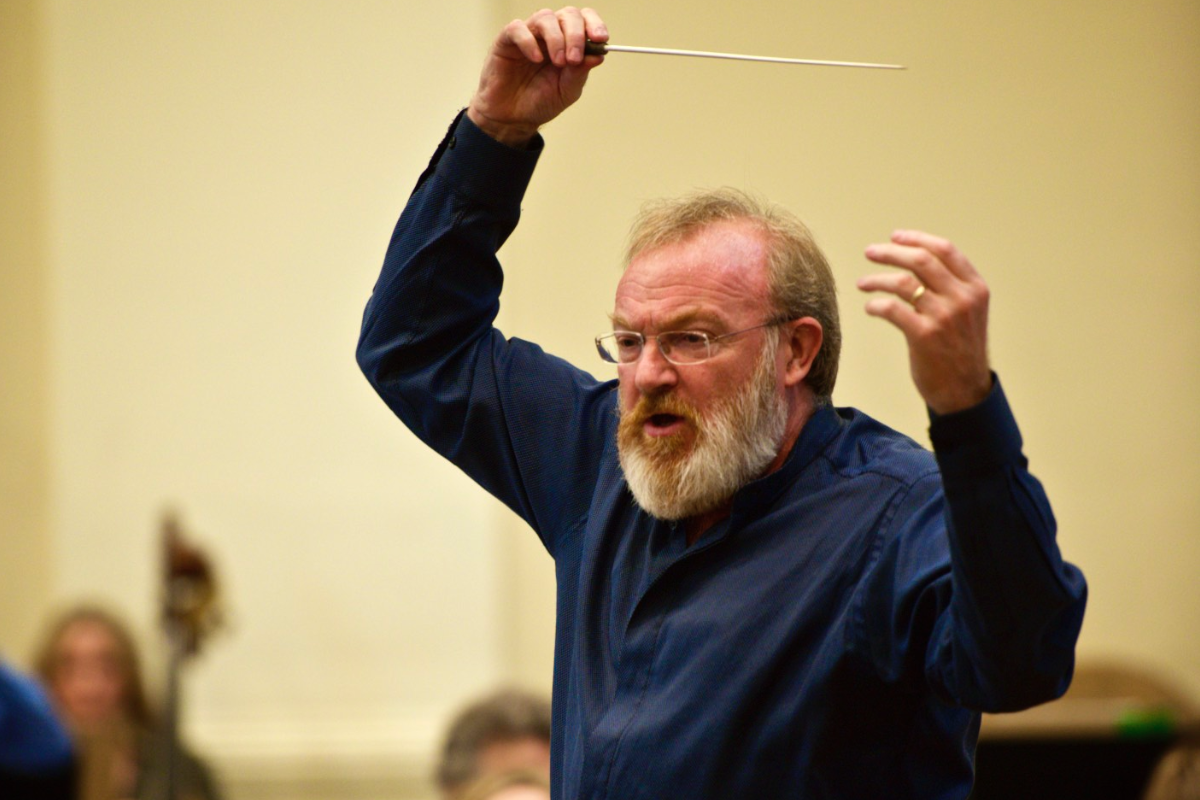
Brabbins has served as ENO's Music Director since 2016
Photo: HyperionS Perry
ENO Director resigns over planned orchestral cuts
Music Director Martyn Brabbins cites “a plan of managed decline” as reason for resignation, but the company says it is “confident it can maintain a substantial level of operatic work”.
English National Opera (ENO) has said it is “surprised” and “disappointed” following the abrupt resignation of its Music Director, Martyn Brabbins, who announced his departure in response to plans to reduce the organisation’s orchestral staff by more than a third.
On Friday, proposals to axe 19 orchestral positions and employ remaining musicians on part-time contracts emerged, to which ENO said it is having to “reevaluate [its] employment levels” following a reduction in funding from Arts Council England (ACE).
Brabbins, who has worked with the opera since October 2016, released a statement yesterday (15 October), stating he “cannot in all conscience continue to support the board and management’s strategy for the future of the company”.
READ MORE:
“While my feelings on this have been developing for some time, it reached its nadir this week, with the internal announcement of severe cuts to its orchestra and chorus from 2024/25 season,” his statement continued.
“This is a plan of managed decline, rather than an attempt to rebuild the company and maintain the world-class artistic output for which ENO is rightly famed.”
In a statement released several hours later, the opera said it was “disappointing [Brabbins] has chosen to resign rather than support the company by engaging with the process of creating a sustainable future for the ENO”.
“As a member of the ENO’s senior leadership, Martyn has been party to all key discussions at all stages and the extremely difficult decisions that have to be made by the board and management in constrained financial circumstances,” the statement added.
“As recorded in board minutes, an all-staff meeting and in correspondence with management and the board, Martyn agreed that the position reached with Arts Council England in July 2023 provides a workable outcome.”
Compromise or catastrophe?
The two statements take opposing views on the proposals to cut orchestral staff numbers.
ENO said that, after nine months of negotiation with ACE, it has “reached a position where we are confident we can maintain a substantial level of operatic work – as opposed to the original reality of total redundancy across the entire company”.
While acknowledging the cuts have been “necessitated by ACE’s interference in the company’s future”, Brabbins said the proposed changes will “drive a coach and horses through the artistic integrity of the whole of ENO as a performing company, while also singularly failing to protect our musicians’ livelihoods”.
He also called on ACE to “reassess this situation and recognise the devastating implications their funding decisions will have on the lives of individual musicians, as well as the reputation of the UK on the international stage”.
The proposal, which was branded as “devastating” by the Musician’s Union last week, has been met with widespread concern online.
Chief Executive of the Independent Society of Musicians (ISM), Deborah Annetts, wrote on Twitter/X that the news was “deeply concerning”.
“When I met with ACE after the funding cuts were announced last year, I said musicians would lose their jobs as a result of the cuts. They were dismissive and said musicians could get other jobs. Extraordinary response. Is ACE fit for purpose?” she added.
ISM’s President Elect, Nicky Spence, added “after a great start to the season, forcing cuts at English National Opera feels like another insensitive and misinformed misfire by ACE.”
Brabbin is ENO’s second successive music director to resign over proposed cuts and job losses after Mark Wigglesworth left his post following less than a year in the role in 2016.
Join the Discussion
You must be logged in to post a comment.